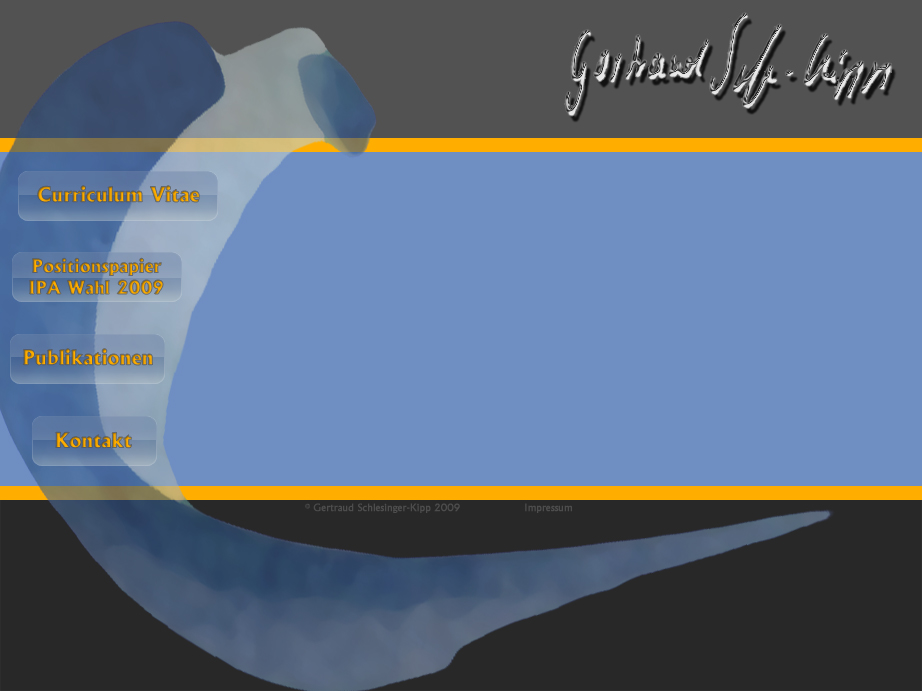Position Paper
(DOWNLOAD)
By my interest and my experiences in various areas of psychoanalysis, as well as in regional and international positions, I feel qualified to present myself as a candidate for European Representative on the IPA Board. In particular as President of the German Psychoanalytical Association (DPV) during the 2007 IPA Congress in Berlin, I had the practical opportunity to appreciate and to represent the IPA’s importance to our members. Even sceptical DPV colleagues were convinced after this conference that it is important and deeply valuable to speak the same psychoanalytic language with psychoanalysts from other countries and to exchange views on similarities and differences in clinical practice, theory and research. In Germany in recent years overcoming the prolonged schism between the two major German psychoanalytical organisations (DPV and DPG), as well as fostering their collaboration, for instance the preparations for the Berlin Congress, was a great challenge.
Sigmund Freud laid down psychoanalysis for his successors not only as a ‘method of healing the heart’ but as a comprehensive theory of the human psyche and a form of cultural analysis. For several decades now, psychoanalysis in Germany has been firmly rooted in society, culture and health care, not least because it has helped us to engage with our past. IPA colleagues have given us crucial support here.
The IPA is therefore of key importance to us, as to other Component societies, in being open to the Other beyond our own perspective. In the view of the Other, the encounter with the stranger, we recognise ourselves. I am also convinced by my own experiences of the IPA’s significance in countries where psychoanalysis is being newly established, particularly when we respect the cultural and historical differences.
As a member of my home institute of the DPV/IPA in Kassel, which feels indebted to psychoanalysis in the Alexander Mitscherlich tradition, I had the opportunity as President from 1995 to 2003 to learn about the importance of culture and society for psychoanalysis and to make my own contribution. Beside research and training seminars on clinical topics (such as old age, dream interpretation, female development, the ‘inability to mourn’), there was a focus on engaging with the German past, i.e. National Socialism, the War and the Holocaust, which led to a research project of my own into the memory of psychoanalysts who experienced National Socialism and the War in Germany as children.
My first international post was as COWAP coordinator in Germany. The lively, creative and productive collaboration of women from various IPA regions intensified my interest in international collaboration. Both at IPA conferences and as DPV President on the EPF Joint Council, I was able to follow the progression of the IPA towards the recognition of the three different training models. Being familiar primarily with the Eitingon model, I observed the other training models with growing interest. It seems to me especially important that following IPA recognition the proponents of these models should now enter into an intensive exchange and explore the differences.
I should like to contribute my diverse experiences to the IPA Board as European Representative and ask you for your trust.
List of positions
Gertraud Schlesinger-Kipp:
IPA: Public Information Committee; Election Working Group; 2004-2007 Local Arrangements Committee IPAC Berlin; 2007 welcoming speech for the IPAC Berlin; Committee on Women and Psychoanalysis since 2002. EPF: 2005-2008 Member EPF Council Regional: DPV Vice-President (outgoing); 2006 -2008 President; 2004-2006 Vice-President(incoming); 1995 -2003 Member of the General Board DPV; 1995-2003, President of the Alexander Mitscherlich Institute, Kassel of the DPV/IPA;1998 training analyst; 1989 Member of the DPV/IPA; Working Group ‘Psychoanalysis and Ageing’.
